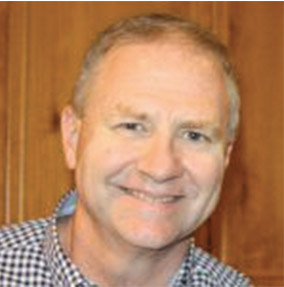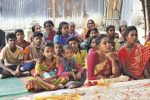 |
Confessing your faith, even at difficult times, plants the seed of the gospel.
A local high school senior asked if I would come to her interfaith club’s evening event to represent Lutherans on a panel of religious leaders. The school wanted to increase understanding between cultures and religion and promised extra credit to the 250 students attending that evening.
When I got there, it was different than I expected. Instead of two or three “kinds” of Christian churches represented, I was the only one who showed up to speak for all Christians. The other speakers included a Hindu priest and two Muslim imams (mosque leaders)—one a Sunni, the other a Shia.
Each of us had an opening statement to describe the basics of our faith. The two Muslims went first. It was obvious from the beginning that they wanted the students to see the similarities of all our religions. “We all have basic morality. We all have a God. For us, he is Allah. We believe that he wants us to follow his rules and trust his guidance. We believe in Jesus too. We believe he was a good prophet. It’s just that Muhammad is the last and greatest prophet.” They obviously were trying hard to skirt our differences.
The Hindu priest went next. He too said that we were all the same with one exception. He said, “Hindus believe in Jesus too, but we also have many other gods. However, we still pray and follow moral precepts.”
Now it was my turn. I could feel the pressure to be nice and not to set my own faith apart and above the others. I sent up a “flare prayer,” and then I began: “I’m thankful for the opportunity to speak. I want you to know that it’s okay for us to be different, even if those differences make us say that one or the other is wrong.”
My voice was quivering. It’s easier to preach to your friends at church than out in the world. But I went on, “There are three fundamental differences between all of us up here on this stage. First, we Christians say that God is triune, that is, there are three persons in one godhead. Second, we say that Jesus was God in the flesh and that he still has his body in heaven while he rules over all things. Finally, we say that Jesus died for the sins of the whole world and then rose to life on the third day just as he promised. We believe that by dying and rising he saved us from our sins and their just punishment.”
Turning to the other leaders, I asked, “You don’t believe any of those things about Jesus, do you? You don’t teach them to your people either, do you?”
Sheepishly, they said, “No.”
Then I turned to the crowd and said, “See, we aren’t the same. We’re very different. It’s okay to be honest about differences.”
Standing up for Jesus in a world that wants to make us all just “get along” isn’t easy. But when we do, we have this promise: “This is what the kingdom of God is like. A man scatters seed on the ground. Night and day, whether he sleeps or gets up, the seed sprouts and grows, though he does not know how” (Mark 4:26,27).
I went home that night exhausted but pleased. Seeds were planted in 250 young hearts and three others who had tried to hide our differences even from themselves.
Author: Don Patterson
Volume 108, Number 4
Issue: April 2021







